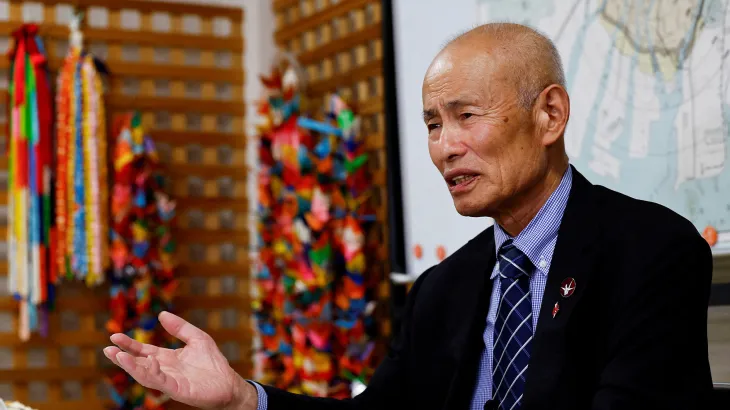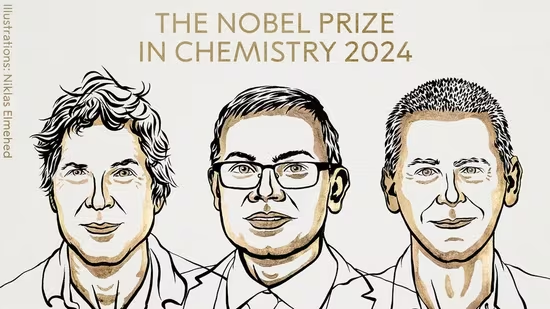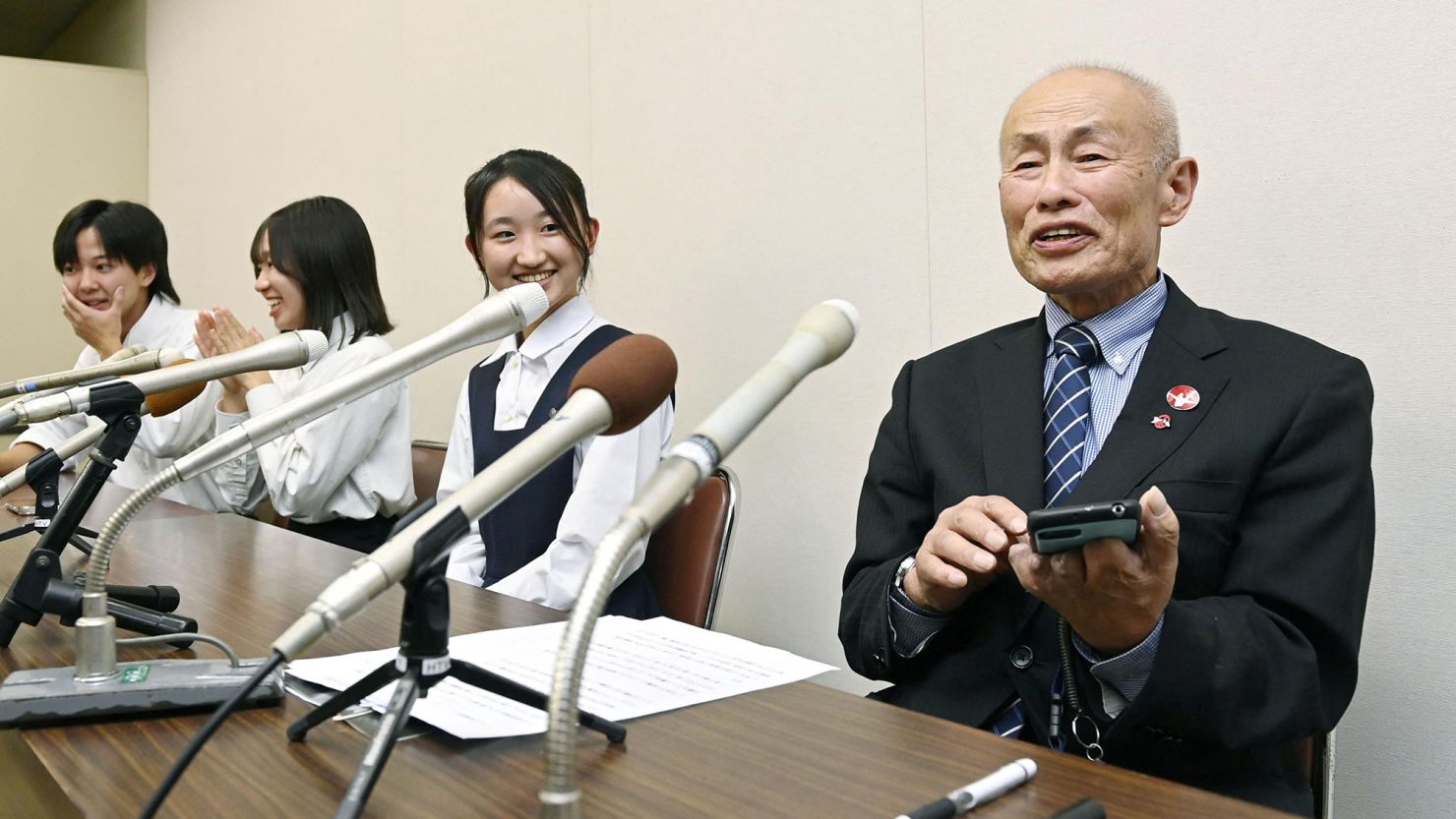The 2024 Nobel Prizes honored diverse fields, from peace efforts to literature, medicine, physics, and chemistry, underscoring the significant role of individual and collaborative achievements in advancing humanity. The prestigious Peace Prize went to Japan’s Nihon Hidankyo for promoting a nuclear-free world, while South Korean author Han Kang won the Nobel Literature Prize. Meanwhile, breakthroughs in medicine, AI, and scientific research highlighted the Nobel’s enduring impact on global progress.

Nihon Hidankyo’s Nobel Peace Prize for Denuclearization Efforts
The 2024 Nobel Peace Prize was awarded to Nihon Hidankyo, a grassroots organization formed by survivors of the Hiroshima and Nagasaki atomic bombings. Recognized for its relentless advocacy for a nuclear-free world, the group has used survivor testimonies to highlight the catastrophic effects of nuclear weapons. The award draws attention to the persistent threat posed by nuclear armaments in a world grappling with ongoing geopolitical tensions and efforts to modernize arsenals.
Nihon Hidankyo’s recognition marks only the second time a Japanese recipient has received the Peace Prize, the first being in 1974. This year’s award serves as a reminder of the organization’s long-standing commitment to peace and the promotion of a safer, nuclear-free future. Toshiyuki Mimaki, co-chair of Nihon Hidankyo, likened the current humanitarian crisis in Gaza to Japan’s situation following World War II, underscoring the universal and enduring consequences of war.
The Peace Prize will be presented on December 10, commemorating Alfred Nobel’s death anniversary, with the ceremony taking place in Oslo, Norway. The Nobel Peace Prize remains the only Nobel Prize awarded outside of Stockholm.

Literature Prize Honors Han Kang’s Poetic Prose
South Korean author Han Kang became the first Asian woman to win the Nobel Prize in Literature in 2024, chosen for her “intense poetic prose that confronts historical traumas and exposes the fragility of human life.” Her notable works include The Vegetarian, Human Acts, and The White Book. Han’s writing delves into the deep interconnections between body and soul, the living and the dead, and the trauma that echoes across generations.
The Vegetarian, Han’s best-known novel, was based on a 1997 short story, The Fruit of My Woman, and was the first Korean novel to win the International Booker Prize for Fiction. The story follows a Korean woman who, troubled by violent dreams, decides to give up meat, leading to a profound transformation in her life and relationships. The novel addresses themes of identity, violence, and mental health, resonating with readers worldwide.
Han Kang’s literary career began in the early 1990s with poetry, and her debut novel The Scarlet Anchor was published in 1994. Her works, often inspired by real-life events, like the Gwangju Uprising of 1980 depicted in Human Acts, convey different perspectives on trauma and resilience. The Nobel Committee praised her for her innovative approach to contemporary prose, blending experimental style with poignant narratives that explore human suffering.

Nobel Prizes in Medicine and Scientific Breakthroughs
The 2024 Nobel Prize in Medicine was awarded to Victor Ambrose and Gary Ravken for their pioneering discovery of microRNAs. These small RNA molecules play a crucial role in regulating gene expression and protein synthesis, providing insights into the molecular mechanisms behind various biological processes and diseases. Their research has advanced the understanding of how different cell types develop and function, even though they share the same genetic code.
Ambrose, who began studying microRNAs in the early 1990s, and Ravken, who contributed significantly to the field, have shown how disruptions in microRNA activity can lead to severe health conditions such as cancer, paralysis, and other cellular malfunctions. This discovery is pivotal, as it opens up new avenues for developing medical treatments that can target gene expression precisely.
In chemistry, the Nobel Prize recognized breakthroughs in the field of protein structure prediction and design. David Baker, a biochemist from the University of Washington, was honored for his innovative work in creating new proteins, while AI pioneers Demis Hassabis and John Jumper of Google DeepMind received recognition for developing AI models that predict protein structures with remarkable accuracy. Their research utilized artificial intelligence to solve one of biology’s longstanding challenges—predicting protein folding, a process essential for understanding the molecular basis of diseases.
The advancements in protein design and prediction have vast implications for the future of medicine, biotechnology, and synthetic biology. The use of AI in scientific research represents a shift in how Nobel Prizes are awarded, reflecting the growing role of interdisciplinary approaches and collaborative efforts between humans and AI technologies.

The Role of AI in Physics and Chemistry Nobel Prizes
The 2024 Nobel Prizes in physics and chemistry highlighted the transformative impact of artificial intelligence on scientific research. John Hopfield and Geoffrey Hinton, recipients of the Physics Nobel, were recognized for their contributions to the development of neural networks, with Hinton’s backpropagation algorithm serving as a foundation for modern AI systems. Their work laid the groundwork for training AI models that can perform complex tasks, such as image recognition and language processing.
Hinton’s contributions also extend to chemistry, where AI models like DeepMind’s AlphaFold 2 have revolutionized the field by accurately predicting protein structures. The combination of physics, chemistry, and AI research underscores the trend towards interdisciplinary scientific breakthroughs, where AI is increasingly integrated into traditional fields to solve complex problems.
These advancements raise important questions about the future of scientific discovery and how credit will be assigned in collaborative efforts involving AI. As AI tools become more sophisticated, they may play an even more prominent role in leading research initiatives, shaping the future landscape of scientific exploration.
The Evolving Landscape of Nobel Recognition
The 2024 Nobel Prizes reflect the evolving landscape of science, literature, and peace efforts. Nihon Hidankyo’s recognition underscores the importance of global denuclearization in a world fraught with conflict, while Han Kang’s literary achievements bring attention to the healing power of confronting historical trauma through art. In science, the increasing role of AI in breakthroughs signals a shift towards collaborative and interdisciplinary approaches in addressing humanity’s most pressing challenges.
As the Nobel Prizes continue to honor extraordinary contributions, they also serve as a reminder of Alfred Nobel’s vision to reward those who have done the “greatest good for humanity.” The laureates’ achievements in promoting peace, advancing medical research, and harnessing AI for scientific discovery highlight the diverse ways in which individuals and teams are shaping a better future for all.


